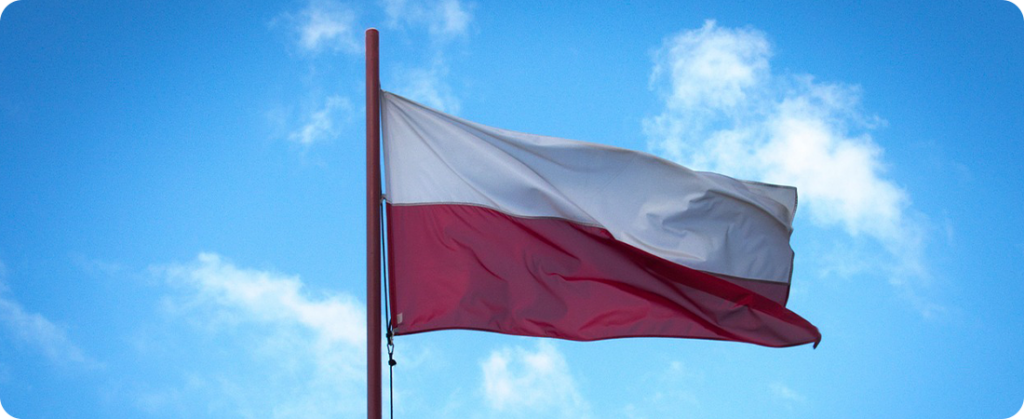
Poland's prime minister announced that the country has stopped supplying weapons to Ukraine as the ongoing dispute over grain imports escalates, The Guardian reported.
Poland is one of the main suppliers of weapons to Kiev. Since the start of the conflict with Russia in February 2022, they have supported the Ukrainian cause. However, tensions have recently risen due to a growing dispute over Ukrainian grain imports, according to a report dated September 21.
Poland-Ukraine tension: Dispute over grains and international reactions raise concerns
On September 20, Polish Prime Minister Mateusz Morawiecki certainly announced the prioritization of the country's defense. This occurred, however, after Ukrainian President Volodymyr Zelenskiy further accused Poland of favoring Russia by banning imports of Ukrainian grain.
Therefore, tension between the two countries increased considerably. However, Poland claimed that this measure was taken due to concerns about the quality of Ukrainian grain. Therefore, this controversy, similar to other conflicts in the region, has caused international concerns.
Not only Ukraine, but also other countries have finally expressed concerns about the escalation of tensions. Therefore, the situation is likely to continue to be closely monitored by the international community.
Since we are facing a delicate scenario, it is important that regional leaders find ways to resolve their differences. Therefore, diplomacy will play a fundamental role in the search for a peaceful solution to this impasse.
“We are no longer transferring weapons to Ukraine because we are now arming Poland with more modern weapons,” Morawiecki said.
The following day, Warsaw government spokesman Piotr Müller clarified the statement, saying that Poland was “only carrying out previously agreed supplies of ammunition and armaments”.
Eastern Europe Grain Dispute: Ukraine's Import Restrictions Affect Trade Relations in the Region
Additionally, The Guardian reported that Poland transferred military aid to Ukraine in the early months of the war. Poland also used its territory as a transit and repair center for weapons supplies from other countries.
However, the announcement was largely rhetorical. As a result of Poland's actions, the situation unfolded in an unforeseen manner. The grain dispute arose after the Russian invasion closed Black Sea shipping routes.
This led to some Ukrainian grain being diverted overland through Europe. In May, the EU took steps to restrict imports in countries including Bulgaria, Hungary, Poland, Romania and Slovakia. The aim was to protect local farmers, claiming that Ukrainian imports affected prices.
The European Commission ended the import ban on September 15, citing the dissipation of “market distortions.” However, Poland, Slovakia and Hungary have imposed their own restrictions on imports from Ukraine. According to Reuters on September 19, these governments have taken measures to protect Ukrainian farmers due to the increase in grain and food imports following the Russian invasion last year.
Ukraine has filed a complaint with the World Trade Organization (WTO) over the trade dispute, a report said.
In response, the Bulgarian government banned the import of Ukrainian sunflower seeds after prolonged negotiations with local farmers, trade sources reported to AgriCensus.
This decision to block imports came during a strike by Bulgarian farmers. It came after the government temporarily lifted the ban on imports of Ukrainian grains and oilseeds, as reported in the September 20 document.
A Bulgaria-based broker said: “Our prime minister has stated that Bulgaria will not import sunflower seeds from Ukraine, especially until we establish some kind of quarterly or licensing system between Bulgaria and Ukraine.”
According to the report, hot and dry conditions have reduced Bulgaria's production prospects, leading the country's crushers to repeatedly ask for help to secure supplies of Ukrainian sunflowers, despite the fact that Bulgaria needs them.
Ukrainian grain transport: Ships heading to China and other destinations face challenges and temporary corridor
According to September estimates, Bulgarian companies forecast the 2022/23 sunflower harvest at between 1.7 and 1.8 million tonnes. This represents a drop of 17% compared to August expectations.
Meanwhile, three more commercial ships were heading to Ukrainian Black Sea ports. AgriCensus reported that Oleksandr Kubrakov, Minister of Community Development, Territories and Infrastructure of Ukraine, reported that they were ready to load agricultural products and iron ore.
On September 15, Kubrakov released a note. In it, he mentioned that three bulk carriers were heading to Chornomorsk and Pivdennyi. They used a temporary corridor created by Ukrainian authorities.
After loading more than 127,000 tons of agricultural products and iron ore, the ships would head to China, Egypt and Spain, according to the statement.
The Ukrainian Armed Forces Navy established a temporary corridor and the vessels Resilient Africa and Aroyat used it successfully, being successfully loaded at the port of Chornomorsk and dispatched earlier in the same week, according to the September 22 report.
These ships were carrying more than 20,000 tons of grain, AgriCensus wrote.
Source: Oils & Fats International














